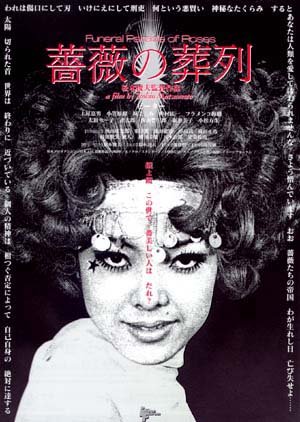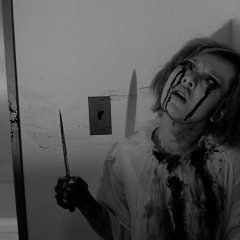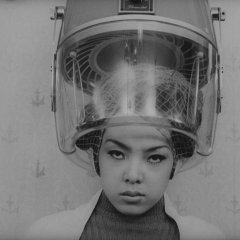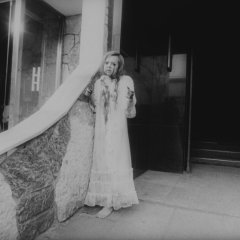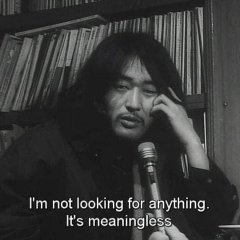- Italiano
- English
- magyar / magyar nyelv
- dansk
- Titolo Originale: 薔薇の葬列
- Conosciuto Anche Come: Bara no sôretsu
- Sceneggiatore & Regista: Matsumoto Toshio
- Generi: Vita, Drama
Cast & Ringraziamenti
- PeterEddieRuolo Principale
- Tsuchiya YoshioGondaRuolo di Supporto
- Azuma Emiko[Mother]Ruolo di Supporto
- Komatsu Hosei[Lover]Ruolo di Supporto
- Ozawa EitaroKyoheiRuolo di Supporto
- Saito Haruhiko Ruolo di Supporto
Recensioni

What does it mean to be yourself?
Cinema is an art. It’s a form of art. It combines a medium that is different from other media. Cinema is just not about pictures. But, it’s about the message and the voice. While speaking about cinema, the mainstream audience always thinks cinema is a part of the entertainment. It’s a medium people would enjoy so much more than this world. However, cinema is more than entertainment. Even a blockbuster movie, you never notice there is something the director wants to convey. Cinema created many other mediums. It creates a new study of films such as visual literature, film criticism, and essays. But, to think of cinema is a voice to everyone, one more thing to say at least is unique.Without the cinema, you cannot understand others. You convey your opinion, struggle, and voice through cinema. Another uniqueness is also why I like cinema. It makes you feel you are a unity of a movie you watch. Speaking of cinema too, in this era, you get a lot of films about other races. You get a film about the struggle for individualism to survive in the era of war. But you also got a film about criticism. However, it’s even more unique when talking about LGBT and cinema at the same time.
LGBT in cinema has a long yet unique journey. Hollywood has almost recognized the theme since Jonathan Demme’s “Philadelphia” and Ang Lee’s “Brokeback Mountain“. Long before Hollywood was still in doubt with the theme, you have to go further back in 50 years before. In Japan precisely in 1969, a movie called “Funeral Parade of Roses” appeared. It later became an inspiration from Stanley Kubrick to make “A Clockwork Orange”. It’s an arthouse drama about a day in the life during the Japanese New Wave of the 60s and 70s. Toshio Matsumoto directed and write a story about Eddie (Pîtâ) and other transvestites in a gay bar struggle with identity.
“Funeral Parade of Roses” acts out of the box and feels like a combination of Kubrickian and Lynchian. For an arthouse drama like this, you think if the story would be monotonous or predictable. If you have watched “A Clockwork Orange” then you understand how weird this movie is. Stanley Kubrick borrowed and took strong inspiration in this film. Both movies play similarly. The humor, the visual, the time-lapse sequence, and so on, it’s everything. It feels the movie also plays weirdly like it just chopped up and down like a potato. The movie also has a sequence where one scene to another moves with a unique transition. Like most in Kubrick movies, this movie plays similarly.
“Funeral Parade of Roses”, besides being unique because of the cinematography and editing, is a complex movie. The movie presents a story about identity, love, hate, and feeling through visuals. There is a sequence where everyone becomes high and doing random things. Other times, the movie also acts seriously. There is so much layer to tell about especially in our main character, Eddie. But, the movie has a marvelous impression and ahead of its time where you think you feel hypnotized. Sex is the main key to this filmmaking. For Eddie too, she quiet enjoy why she likes being a gay boy. I think there is not a logical question of why. It’s like saying why do I like this thing and why don’t I was born to be this guy. It’s simple, to begin with.
This movie is a stone for everyone. Many times I feel the effect of how the movie gives you a dose of drugs with the sequence. It’s a little bit weird when Pier Paolo Passolini’s “Oedipus Rex” inspired this movie. There is a sequence where five posters appear on the screen. But, the sequence also comes to a significance similar plot. Above all, this movie confronted a limitation because it alienated the characters and everybody. Just like what Eddie feels and other characters. There is no one straightway to introduce yourself. And Joji Yuasa’s experimental ambiance score feels like you are close to the entire question. It’s an authentic theme with the beautiful visual all come close to one question. Why do they become gay boy?
“Funeral Parade of Roses” is an experimental movie, very ahead to its time, and very contemporary to this day. Through jarring, horror, and disturbing editing, you don’t even know where you should laugh. It’s like a manipulation, like the editing, and it makes you feel you are watching two films. It’s a hard experience and emotionally an aesthetic of movies. Matsumoto, on the American side’s struggle with LGBT cinema, was there to voice what he wants to convey. You may not understand them. But, you understand the world they see is no more than humans as well in general. In a nutshell, a profound cinema like this can make you feel like you don’t belong here.
Questa recensione ti è stata utile?

